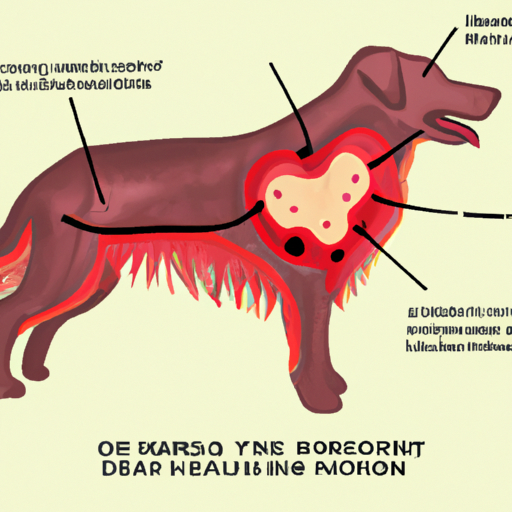Heartworm disease is a silent killer that can lurk undetected in your dog’s body, causing severe damage to their heart, lungs, and other organs. If untreated, this disease can be fatal. As a responsible pet owner, you should be aware of the risks and symptoms of heartworm disease, as well as the steps you can take to protect your canine companion.
Table of Contents
- Understanding Heartworm Disease
- How Heartworms Affect Dogs
- Symptoms of Heartworm Disease
- Testing and Treatment
- Prevention is Key
- Frequently Asked Questions
Key Takeaways
- Heartworms are transmitted by mosquitoes and can cause life-threatening damage to a dog’s heart and lungs.
- The symptoms of heartworm disease can be subtle and may not appear until the disease is advanced.
- Regular testing and preventative medication are the best ways to protect your dog from heartworm disease.
Understanding Heartworm Disease
Heartworm disease is caused by a parasitic worm called Dirofilaria immitis. These worms are spread through mosquito bites, and it only takes one infected mosquito to transmit heartworms to your dog. Once in a dog’s body, heartworm larvae mature into adults, mate, and produce offspring while living inside the heart. You can find more detailed information about the life cycle of heartworms here.
How Heartworms Affect Dogs
The impact of heartworms on dogs is profound and terrifying. As heartworms grow and multiply inside a dog’s heart, they cause inflammation and damage to the heart and blood vessels. This can lead to heart failure and damage to other organs due to decreased blood flow. Moreover, heartworms can live for up to 7 years in dogs, causing long-term damage that may be irreversible even with treatment.
Symptoms of Heartworm Disease
The symptoms of heartworm disease can be subtle and often don’t appear until the disease is advanced. Some of the signs to watch out for include:
- Fatigue after moderate activity
- Coughing
- Decreased appetite and weight loss
- Swollen belly due to excess fluid in the abdomen
- Collapse
If your dog exhibits any of these symptoms, it’s important to get them checked by a vet immediately.
Testing and Treatment
Regular testing for heartworms is crucial for early detection and treatment. The American Heartworm Society recommends annual testing for all dogs. If your dog tests positive for heartworms, treatment can be a long and costly process that involves multiple medications and possibly hospitalization.
Unfortunately, heartworm treatment can also be harsh on a dog’s body. This is why preventative care is so important.
Prevention is Key
Preventing heartworm disease is much easier, safer, and more cost-effective than treating it. Most heartworm preventatives are given monthly and come in the form of a pill or topical medication. These medications not only prevent heartworm disease but also protect against other parasites such as fleas and ticks.
Moreover, keeping your dog indoors during peak mosquito hours and maintaining a clean yard can also help reduce the risk of heartworm infection.
Frequently Asked Questions
1. Can humans get heartworms from dogs?
No, humans cannot get heartworms from dogs. The heartworm species that infect dogs do not typically infect humans.
2. Can heartworms be cured?
Yes, if detected early, heartworms can be treated and cured. However, the treatment process can be lengthy and expensive.
3. How can I prevent my dog from getting heartworms?
The best way to prevent heartworm disease is through regular use of preventative medications. These medications are typically given monthly and can be obtained through your vet.
4. What breeds are most susceptible to heartworm disease?
Heartworm disease can affect all breeds of dogs, regardless of their age, size, or breed.
In conclusion, heartworms are a serious threat to dogs, but with knowledge and preventative care, you can protect your furry friend from this deadly disease. Always remember, when it comes to heartworm disease, prevention is always better than cure. For more advice on caring for your dog’s health, visit One Top Dog’s Health Tips.



